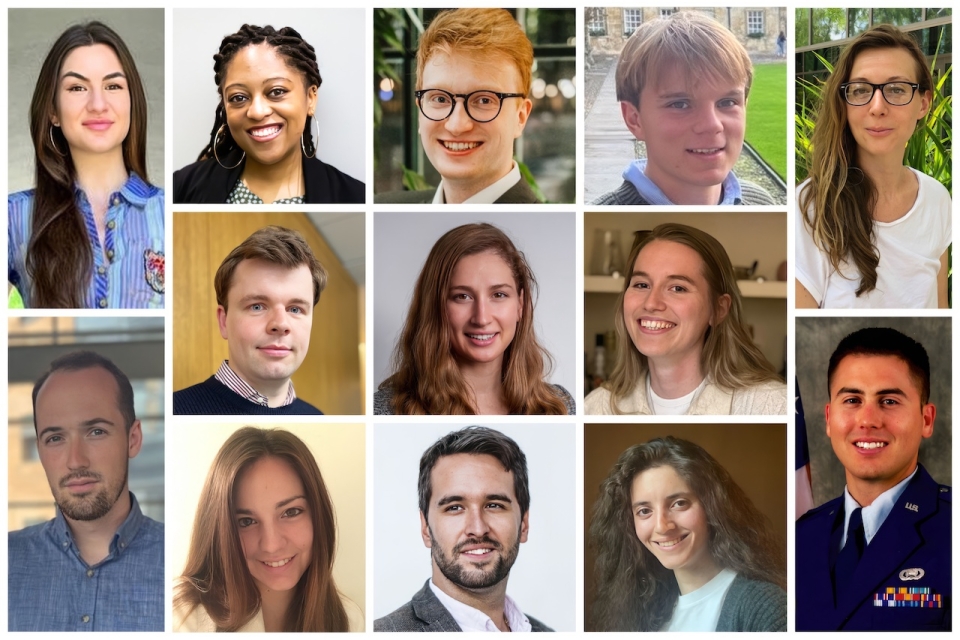Monterey Symposium 2023

It is our pleasure to announce a new cohort of fellows of the Monterey Summer Symposium 2023.
Overview
Monterey Summer Symposium 2023 was held in Armenia and Georgia from July 2 to July 18. Armenia and Georgia are two very different countries, differently positioned geopolitically, though with shared history in the Soviet Union and Russian Empire. They stand at a proverbial crossroads of international affairs. China’s Belt and Road Initiative runs through the South Caucasus, which are crucial to global energy supplies. On energy and regional security, the United States plays an important role, while Turkey and Iran are neighboring countries, connected to Armenia and Georgia through bonds of tension and affiliation. Armenia and Georgia have been profoundly affected by Russia’s war in Ukraine, which has added degrees of uncertainty to a region long familiar with uncertainty.
Background
At a time when direct contact with Russia is difficult, because of the war and its consequences, Armenia and Georgia offer unique lenses through which to understand the course of Russian politics, the drift of Russian foreign policy and the place of Russia in the world. Although the United States, Europe, and China are significant regional actors, they are hardly the only relevant ones; and they can be quite distant. The region’s own complexities must take center stage. Armenia’s close relationship with Russia can be compared with Georgia’s conflictual relationship with its large neighbor. While Russia’s influence (present-day and historical) in the region is impossible to ignore, it must be also recognized that regional actors in the South Caucasus have influence on Russia, and they often find ways of breaking away from or qualifying Russian influence. Careful consideration of these dynamics is helpful for an understanding of what Russian power is and what it is not.
Another pivotal reality is the way in which Armenia and Georgia have become key destinations for the Russian diaspora following Russia’s invasion of Ukraine. There was a joke in the 1930s that the only place in the world where the battle between Stalin and Trotsky could truly be carried out was New York City. This joke has a contemporary resonance. Russian politics is taking shape not just in Moscow and not just in the Kremlin. It is visible and audible in the buzz of conversation, the debate, and the publications of many diaspora centers, from Berlin to Riga. Of these, Yerevan and Tbilisi have become two of the most important. The Monterey Summer Symposium 2023 thus provided serious students of Russian history, culture, and politics a unique opportunity to get out of the classroom and off social media, and to engage people in real time on the major questions of the day.
In the Monterey Summer Symposium 2023, twelve selected fellows learned about imperial geopolitics in Eurasia and the world. They analyzed the war in Ukraine in comparative historical context, examining the end of the Soviet empire and its on-going consequences. They probed the history of the Soviet Union as a multi-national, multi-ethnic, multi-confessional state. They delved into the South Caucasus and Caucasus more generally in the Soviet and post-Soviet cultural space, exploring their geopolitics. They looked carefully at the roles played by Russia, Iran, Turkey, the United States, and China in the region, including in the Black Sea region; and they assessed the impact of the war in Ukraine on the Caucasus. While addressing these themes, the Monterey Symposium fellows conducted sociological field research on the influx of Russian citizens on Armenia and Georgia. They completed the Symposium not just with a host of new ideas but, by their own assessment, with a new angle of vision.
Symposium fellows were taught by:
- Thomas Graham
- Dominic Lieven
- Robert Legvold
- Ronald Suny
- Olesya Vartanyan
- Yuri Slezkine
- Andrei Zorin
- Georgi Derlugyan
- Anatol Lieven
- Hanna Notte
- Arthur Atanesyan
- Alexander Iskandaryan
- Hans Gutbrod
- Michael Kimmage
- Irina Zorina
- Andrey Kortunov
Apply
Applications for the Monterey Summer Symposium 2023 are closed. The deadline for application was February 1, 2023. The next application date will be announced.
Learn more about the application process and requirements.
